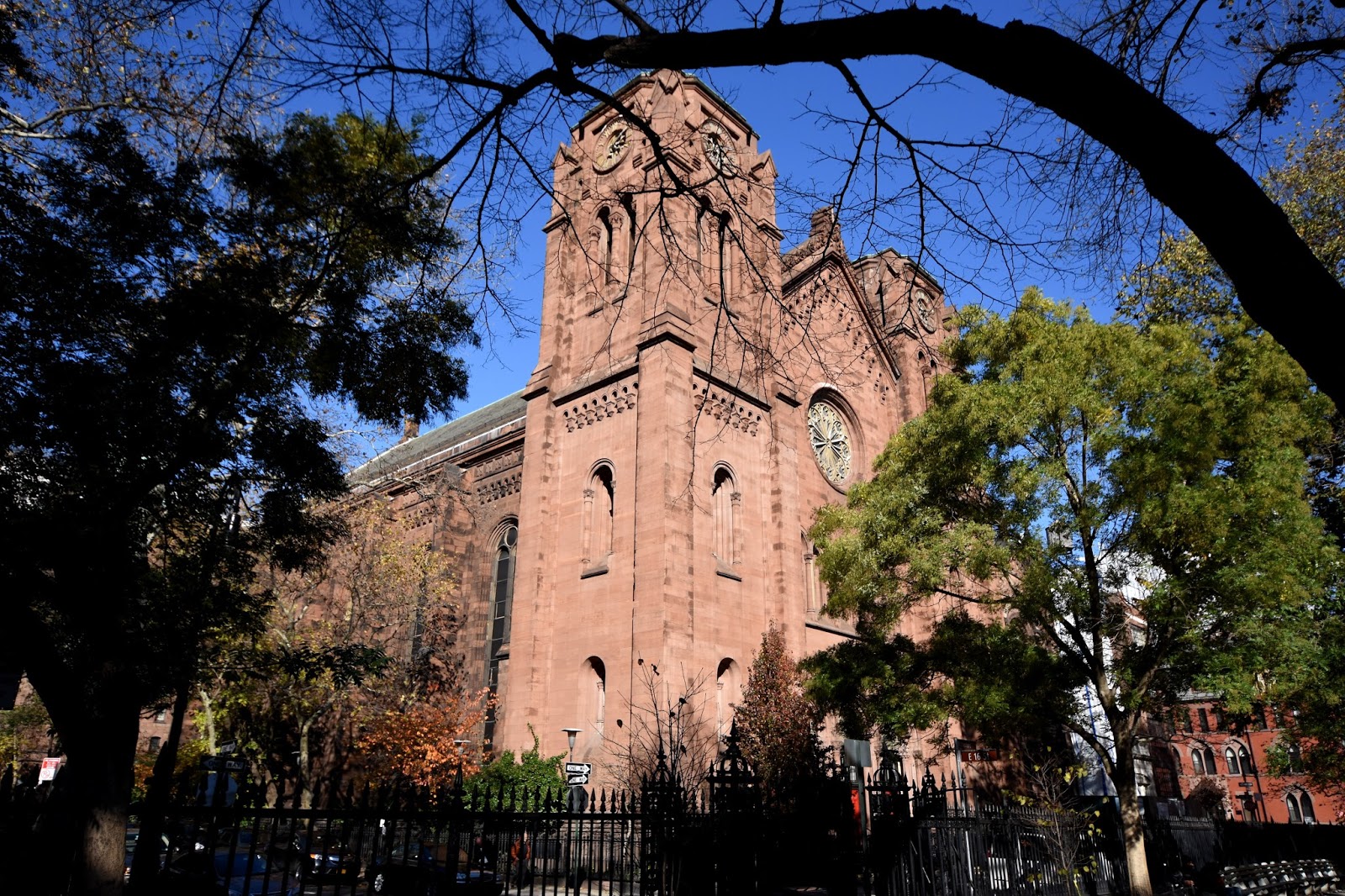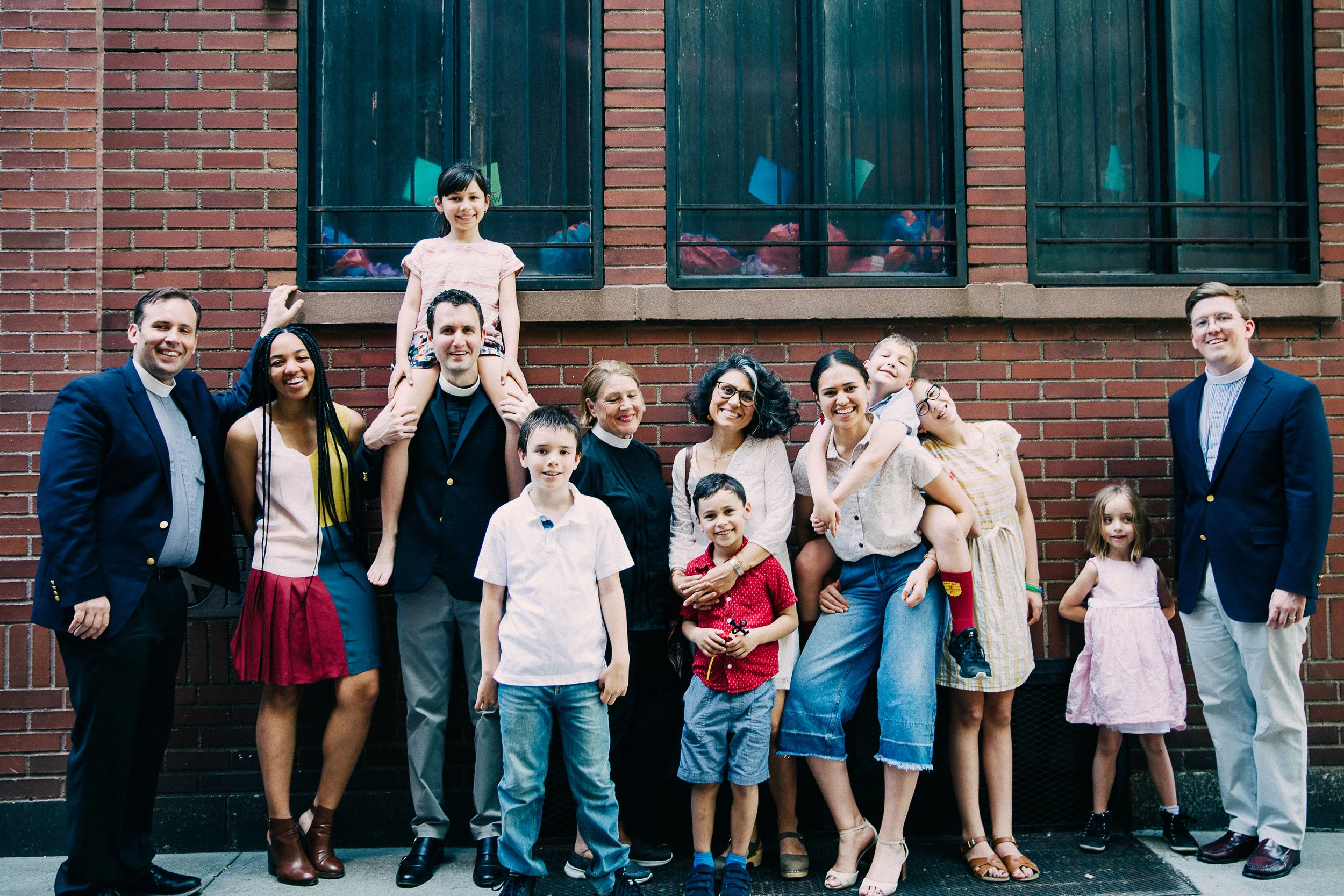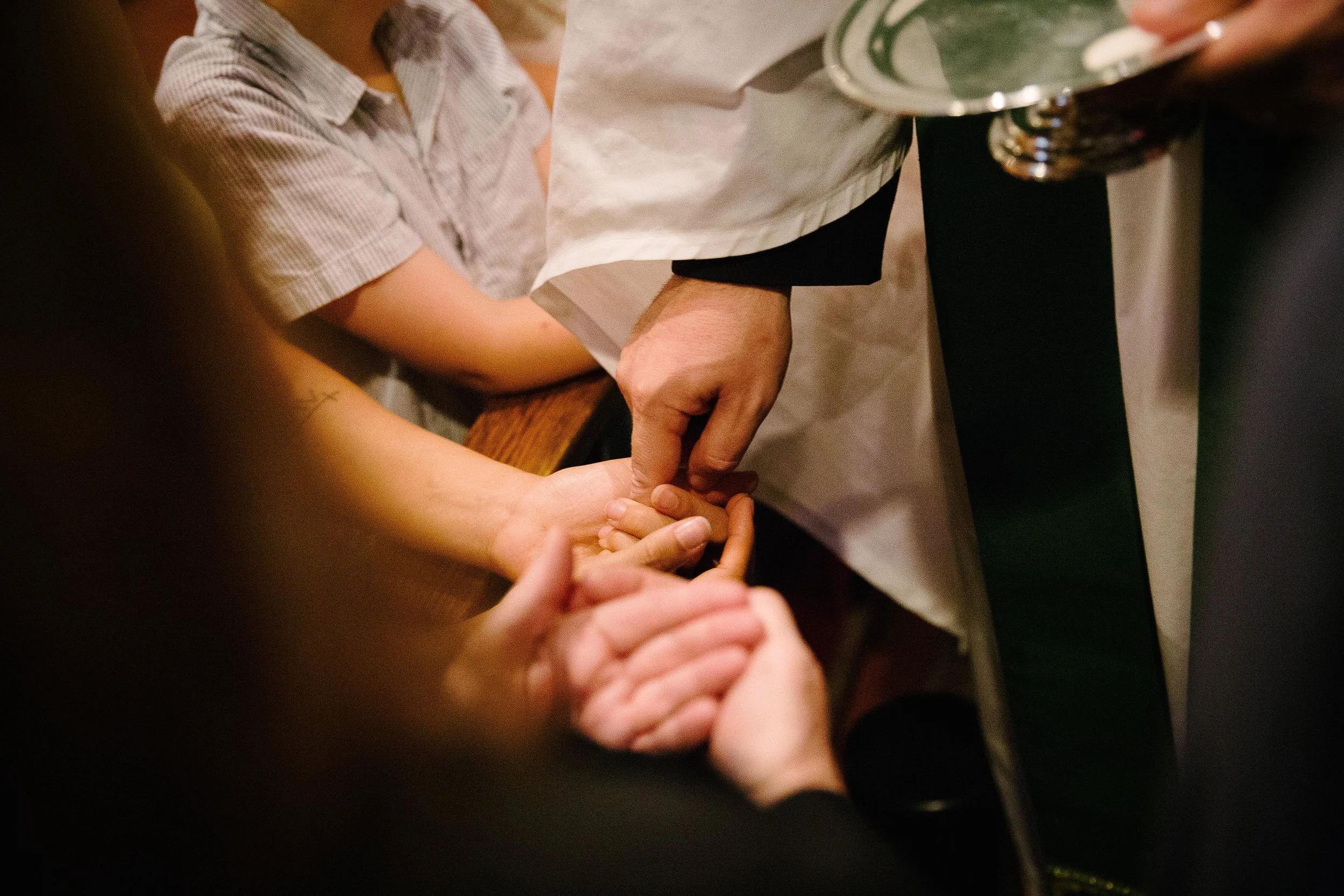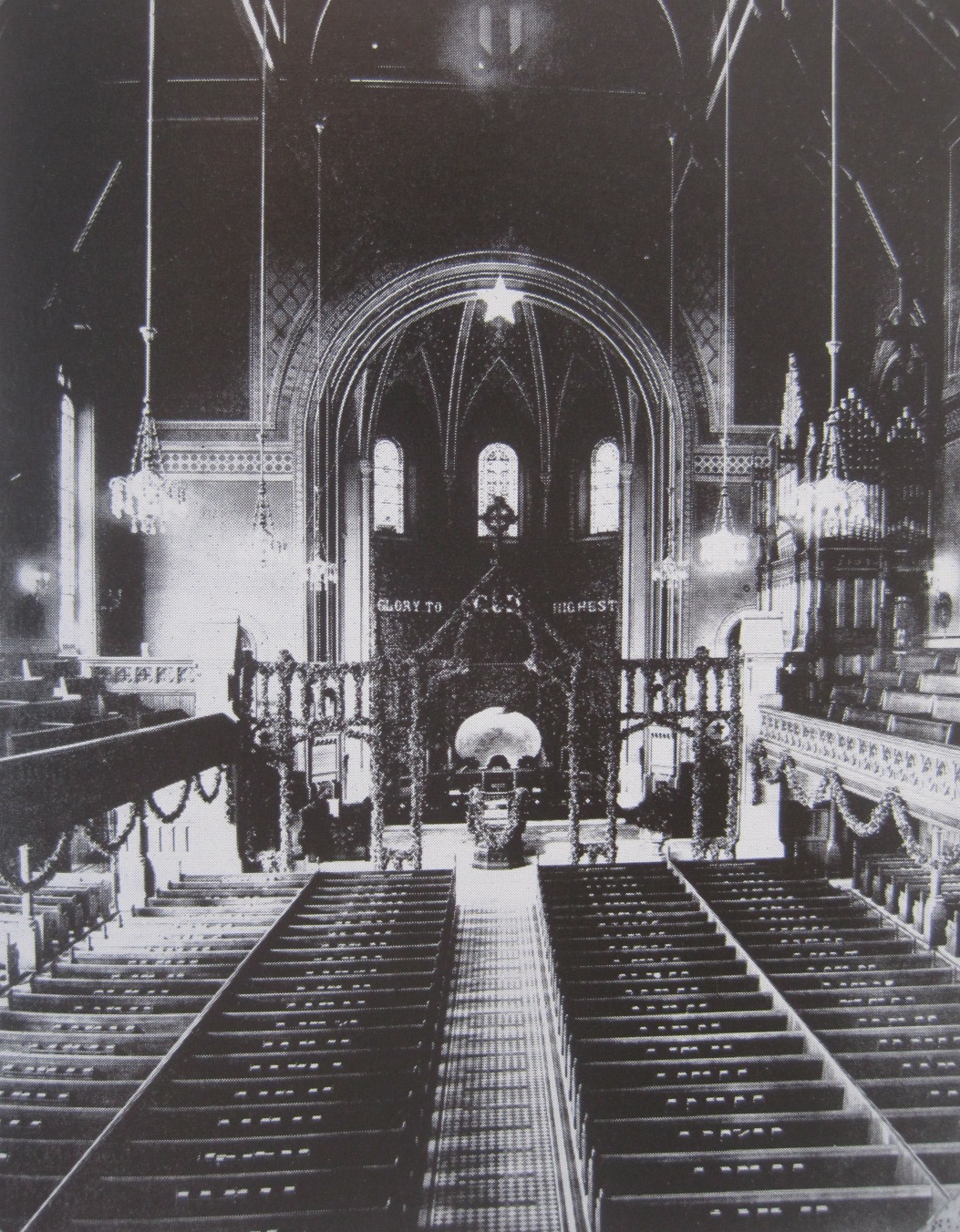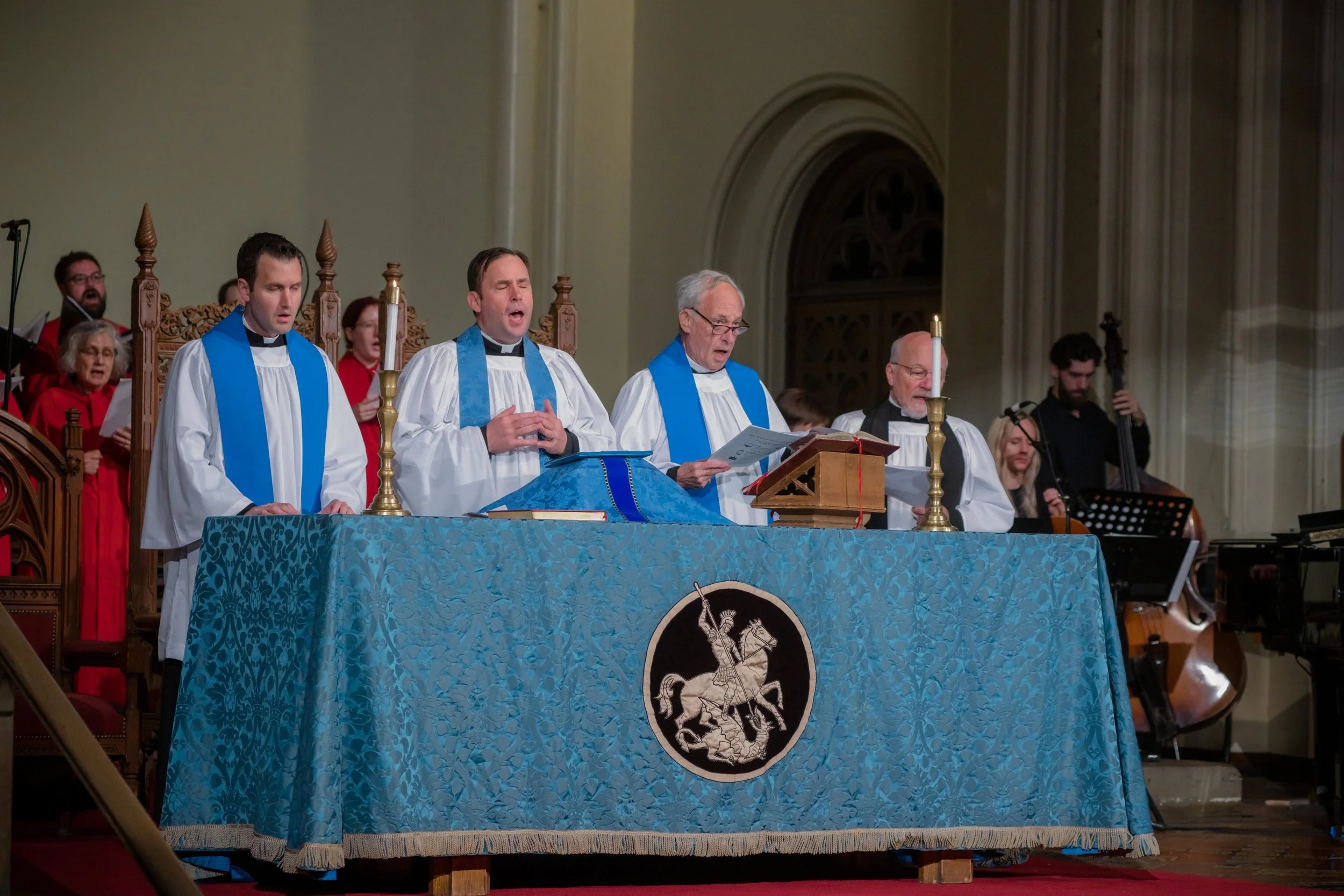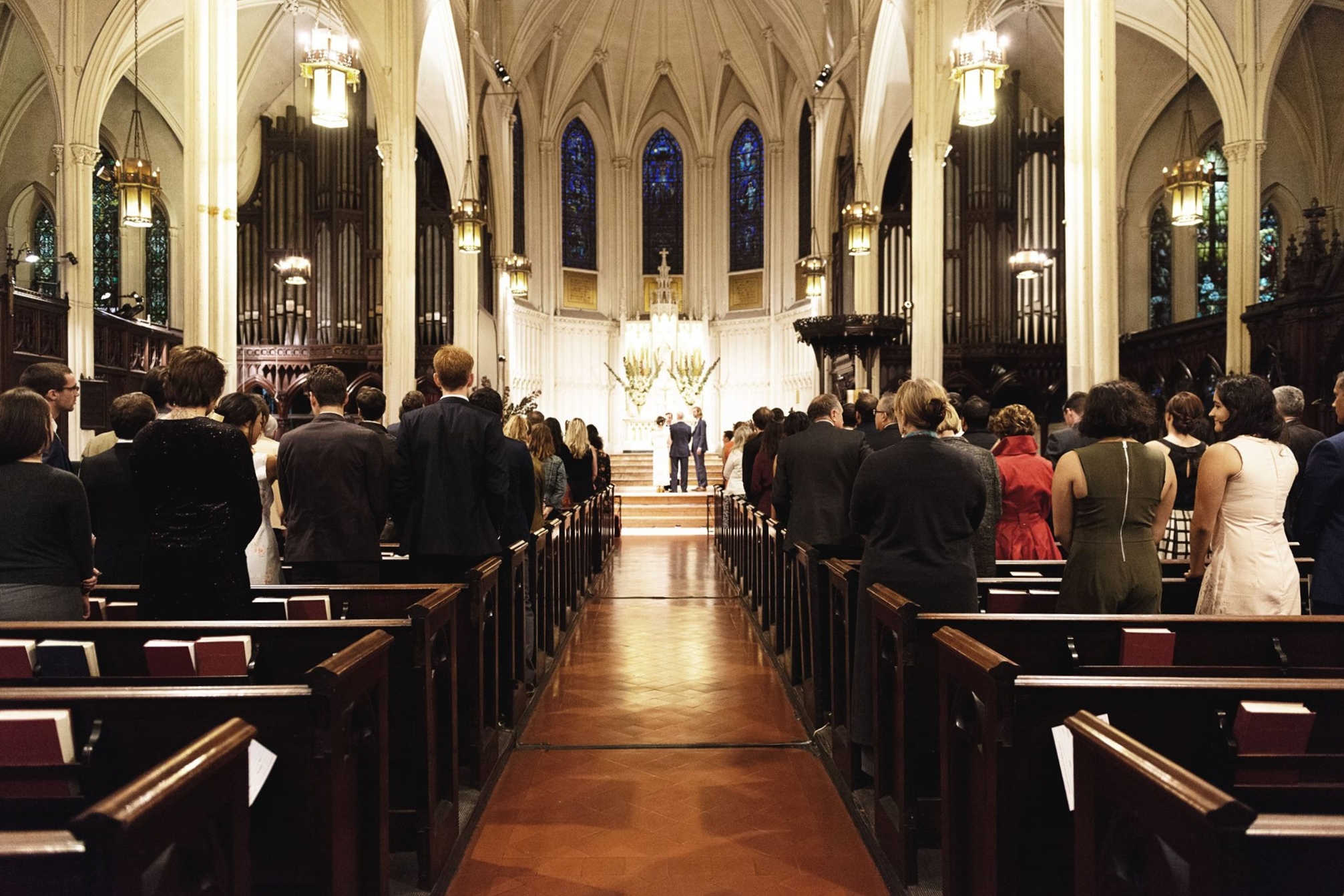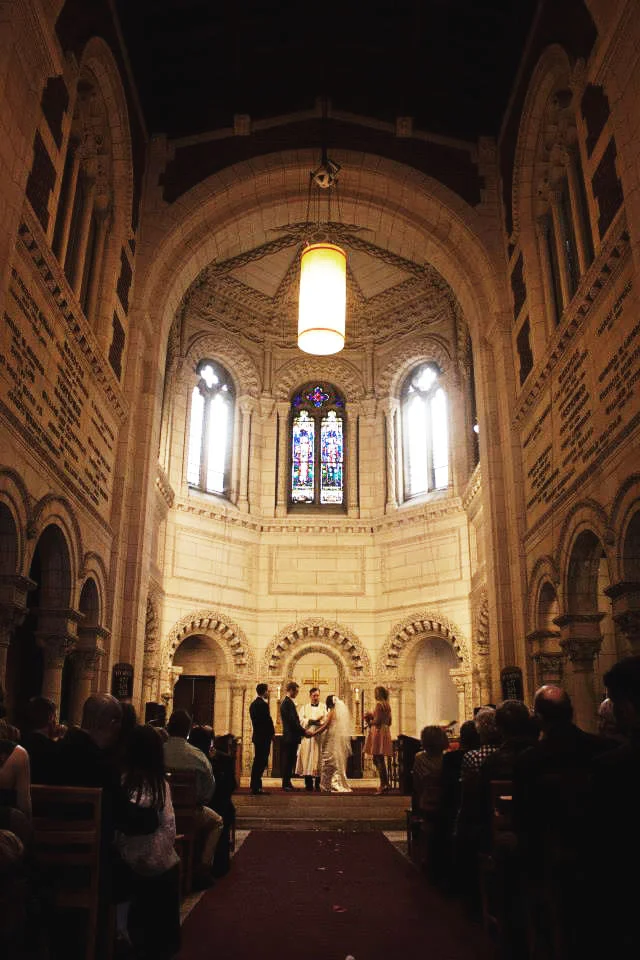Who We Are
The Parish of Calvary ~ St. George's is an historic Episcopal parish consisting of two churches, located in the Gramercy and Stuyvesant Square-area of Manhattan. We are a community of people in the Episcopal Diocese of New York, which is a constituent member of the world-wide Anglican Communion. Our worship is steeped in The Book of Common Prayer, intended first and foremost to glorify God in Jesus Christ, and we stand in that theological tradition which owes a debt of gratitude to the great reformers of the English Reformation.
We seek to rightly divide the word of truth between Law and Gospel, so that the people in the city of New York and beyond might know and confess where they end and God begins. We proclaim the historic faith of Christ and Him crucified.
"When I came to you, brothers and sisters, I did not come proclaiming the mystery of God to you in lofty words or wisdom. For I decided to know nothing among you except Jesus Christ, and him crucified." - 1 Corinthians, 2
Glossary of Terms
Here at The Parish of Calvary ~ St. George's, you're bound to certain theological terms over and over again. As we seek to rightly divide the Word of Truth, between Law and Gospel, we encourage you to get familiar with our terminology. Check out how we think about the concepts of "Law," and "Gospel," below, then go from there.
Law - Law is a theological term that refers to one of the two ways God speaks to human beings. In his treatise “The Freedom of a Christian,” Protestant Reformer Martin Luther hit on an essential element of Christian theology when he wrote, “the entire Scripture of God is divided into two parts: commandments [Law] and promises [Gospel].” The basic distinction is straightforward: the Law tells us what we ought to do; the Gospel tells us what God has done. The Law, with it’s ‘you must’s or ‘you must not’s, both defines the universal standard of divine goodness and reveals human weakness. It typically does its work of accusation in the form of a commandment attached to a condition. “If you do/are ________, then you will __________.”
In daily life, Law is not primarily a matter of what is said or written; it is a matter of what is heard. It is defined by its function and effect (i.e., constraining and accusing) rather than by its content. As such, it cannot simply be reduced to a moral code or grammatical pattern. For example, the common assumption that “imperative = Law” does not do the Law justice (though most imperatives are indeed heard as accusations). We often perceive headlines or even tones of voice as judgments as well. In practice, then, the requirement of perfect submission to the commandments of God has the same effect as the requirement of perfect submission to the innumerable drives for perfection that drive everyday people’s crippled and crippling lives (you should be successful, you must be skinny, you ought to be happy, etc). You might say that divine demand upon the human being is reflected concretely in the countless internal and external demands that we devise for ourselves, religious or not. Everyone is subject to it. Finally, while the Law, in its biblical expression, is true and good, it is also impotent in inspiring what it calls for. In fact, it tends to create the very thing it seeks to avoid. As a motivating agent, it is not just impotent but actually counterproductive. Which is where the Gospel comes in. As St. Augustine once wrote, “The law… contributes nothing to God’s saving act: through it he does but show man his weakness, that by faith he may take refuge in the divine mercy and be healed.”
Gospel - One might think that in a Christian context, a term like “Gospel” would not require a definition. History, however, has proven it to be one of the most contentious terms in the entire tradition. Even people who were converted by the Apostle Paul were prone to turn to other “gospels” (Gal 1:6). No doubt this is why Paul argues in the same book for the “truth of the Gospel” (2:5) to be preserved. Indeed, the severity with which he chastises his beloved congregation illustrates the necessity for getting this all-important concept right. So, with the Apostle Paul, we stand in the tradition that sees the Gospel as just what the word means: Good News. Specifically, the Good News that “Jesus Christ came into the world to save Sinners.” (1 Timothy 1:15). “[Christ] was delivered over to death for our sins and was raised to life for our justification.” (Romans 4:25). The Gospel is a proclamation, rather than an invitation or command, yet it always addresses sinners and sufferers directly, i.e. you and me. People have gone wrong throughout history when they have reduced this Good News to its effect on those who have heard it, e.g., peace, love and understanding. These are wonderful things, to be sure, but they should not be confused for the Gospel itself, lest it become a means to an end, rather than an End in itself.
Anglican/Episcopalian - A group of Christians who find their spiritual roots in the Church of England and English Reformation. We profess the faith that is uniquely revealed in the Bible and set forth in the three Ecumenical Creeds (The Apostles Creed, The Nicene Creed, and The Athanasius Creed). Our beliefs and worship are summarized in the Thirty-nine Articles of Religion, the Book of Common Prayer, and the Ordinal.
Anthropology - Everyone has something in mind when they use the phrase, “We’re only human.” This is because everyone has an anthropology, a conception of what human beings are like, their potential and their limitations, about what constitutes humanity. Some hold a more optimistic estimation of the human race, a “high” anthropology if you will, while others are more cynical or pessimistic, maintaining a “lower” view. Jesuit scholar J. Patout Burns, in his book Theological Anthropology, explains that theological anthropology is simply“ [the investigation of] the resources, the limitations, and the destiny of the human person.” Such an investigation is not only beneficial, it represents the crucial first step of any philosophical or theological project. On this site, we try to learn our anthropology from Jesus, who “knew what was in man” (John 2:25) and prayed for forgiveness for his own executioners because they “know not what they do” (Luke 23:34). We believe that the problem with being “human, all too human,” as Friedrich Nietzsche once wrote, is deeper and more fundamental than any philosophy, instruction manual or moral system can address; it might even shed some light on why our Hero was crucified.
Book of Common Prayer - This book is at the heart of how we worship. The original book, published in 1549, was the fruit of the English Reformation. It contains prayers for various occasions and provides the structure for our services of worship.
Grace - Broadly speaking, grace can be understood as God’s unmerited favor toward human beings, his one-way, sacrificial love for sinful men and women who deserve anything but. It is a gift with no strings attached. Grace is the answer we receive in Christ to the question of God’s disposition toward troubled people like you and me.
How many times can we mess up before we have exhausted God’s forgiveness? In Christ, God’s Grace is revealed to be inexhaustible, the death and resurrection of Christ being the bedrock of this assurance. Through it we are secured of God’s favor—come what may. This is why the triumphant cry of the Apostle Paul in Romans 8:1, “there is, therefore, no condemnation for those who are in Christ Jesus,” has been the hallmark of those committed to the Good News of God’s saving Grace.
Of course, not every Christian tradition agrees on the nature or definition of Grace. Grace in New Testament usage is complex to be sure, but the fundamental point of interpretative contention can be boiled down to whether Grace is an essence that is imparted or a gift that is imputed. That is, whether God’s grace changes people into objects that are worthy of love, or if His grace creates the beloved thing by faith; whether it is a change agent or a saving one. While not denying that it can have a transforming effect, we use it in the latter sense.
Grace, of course, does have horizontal meaning as well. While humans tend to attach strings to the gifts we give, acts of mercy and charity that occur in spite (or because) of ample reason for them not to could be considered gracious. We often experience grace in such terms, being loved when we feel unlovable, praised when we deserve reproach, rewarded when we should be punished, etc. We try to catalog such instances on the Mockingbird site, in the process hopefully gaining a deeper appreciation of the divine disposition.
Imputation - How does a good and holy God reconcile himself to hurtful and hurting men and women? One particularly inspiring answer involves the theological concept of ‘imputation’, the idea that God reconciles sinners to himself by declaring them to be righteous on account of Christ. In and of themselves, they remain the same sinful person. Conversely, God does not justify believers by infusing them with his own goodness or righteousness, he justifies them by imputing Christ’s righteousness to them. We are judged by God on the basis of Christ’s action and identity, which, through his death and resurrection has been given or reckoned or imputed to us by faith, rather than on the basis of our action and identity. As one classic summary puts it, “Christ’s merits are given to us so that we might be reckoned righteous by our trust in the merits of Christ when we believe in him, as though we had merits of our own” (Apology of the Augsburg Confession XXI).
Needless to say, this is a complicated notion, and one that, from the time it was first put this way in the Reformation, has been a source contention among Christians. The basic issue boils down, again, to: why and how does God actually count people who are not righteous as righteous? This, of course, has everything to do with Jesus.
When contemplating the “work of Christ,” one is entering into the realm of Christian theology that is known as the “Atonement,” AKA the question of what exactly Jesus accomplished on the Cross. In the imputation understanding of atonement, God is interested in people giving up any idea at all of there being a price that could be paid to earn his love or forgiveness. It does away with all models of merit in our relationship to God. Jesus saved us purely “by giving his life as a ransom for many” (John 3:17). Rather than seeing the human condition as one merely of sick people needing to be cured, this approach views us more along the lines of the walking dead who need to be brought to life (i.e., zombies!).
Dead people do not merit anything; they can only be raised with Christ. Until our own deaths, however, this raising with Christ can only be anticipated by faith; it can only be confessed. We confess that by imputation, God has given us the only thing that has ever been needed: to be “reckoned Righteous” before God (cf. Gen. 15:6) by faith.
It can also be useful to talk about analogies for imputation in the world around us. Whenever we are shown love when we do not deserve it, when we are loved by someone right in the middle of our “unlovability”, we see a kind of analogy for imputation – “love to the loveless shown”. Our understanding of God’s imputation of righteousness to sinners can be deepened through these parables all around us – whether they are from the novels of Victor Hugo, our own relationships, or… zombie movies.
Liturgy - The church's public worship of God. The term is derived from Greek words for "people" and "work." The church's public worship of God is the work of the Christian people.
Reformational - An understanding of Christian worship, theology, and life through the theological lens of the Protestant Reformation.



